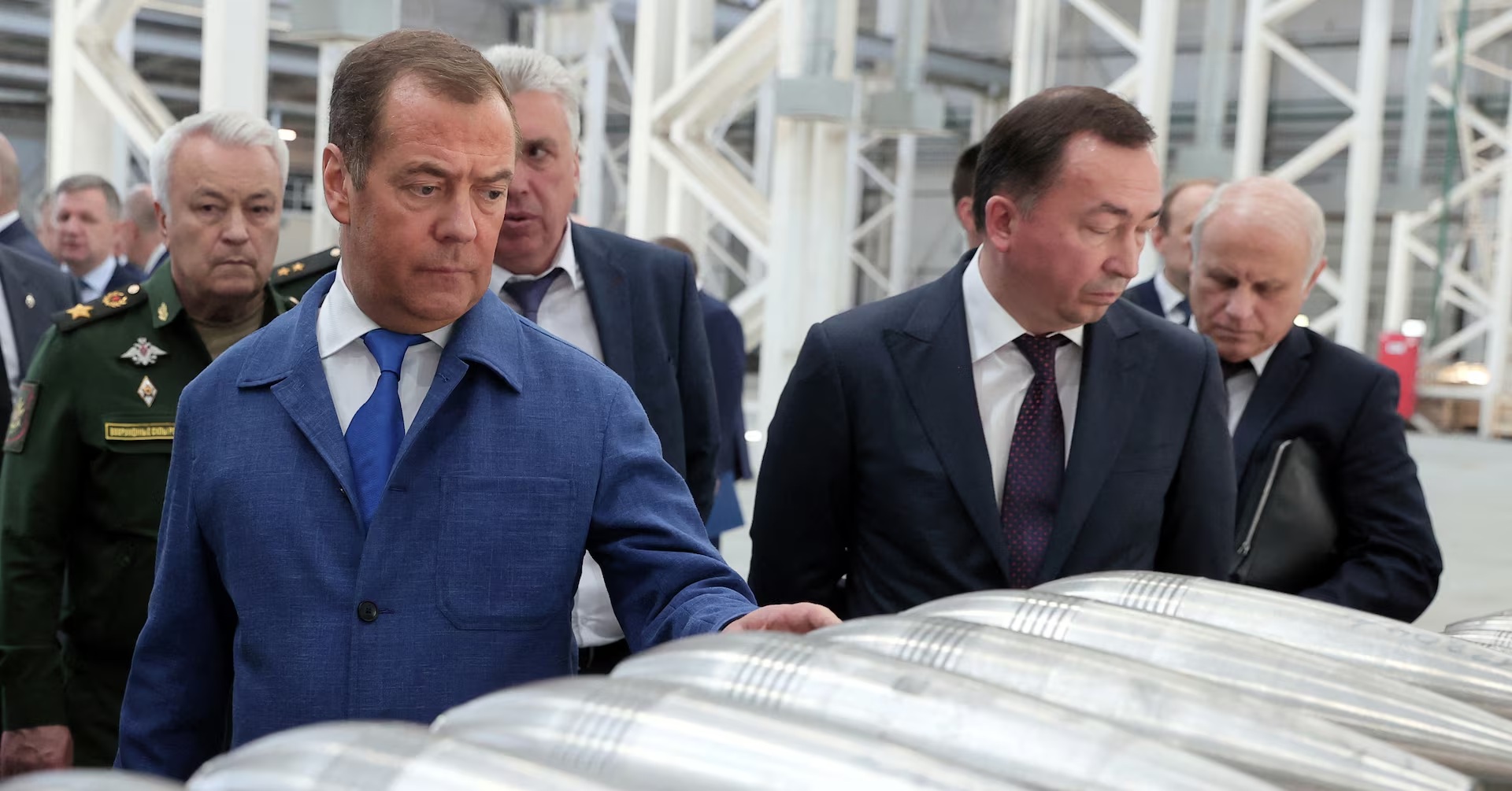In a series of dramatic public statements, Dmitry Medvedev, the Deputy Chairman of Russia’s Security Council and former Russian President, asserted that Western countries are “practically waging a full-scale war” against Russia.
His remarks on Thursday, coming amid deepening geopolitical tensions exacerbated by the ongoing conflict in Ukraine and sweeping Western sanctions, provide a sharp illustration of the current state of relations between Russia and the West.
Medvedev’s Assertion and Context
On July 17, 2025, Medvedev announced that the actions of Western countries amounted, in his view, to a full-scale war against Russia.
He cited Western military support for Ukraine, such as the supply of advanced weapons, satellite intelligence, and diplomatic backing, as evidence that the conflict is no longer merely a “proxy war,” but carries all the characteristics of direct, large-scale confrontation.
“What is happening today is a proxy war, but in essence it is a full-scale war,” Medvedev stated.
He referenced missile launches attributed to Western weaponry and intense intelligence sharing with Kyiv.
Rationale and Escalatory Rhetoric
Medvedev’s rhetoric is notable for its heightened tone and its emphasis on escalatory policies.
He argued that, given his interpretation of the West’s involvement, Russia “should respond in full,” and he even entertained the possibility of “preventative strikes” if Moscow deems them necessary.
These comments, as reported by state media and major outlets, underscore the depth of Russia’s grievances.
It also underscores its willingness to contemplate further assertive, even preemptive measures in response to perceived threats.
This belligerent tone is not new for Medvedev, who has become known for his hawkish posture since Russia’s invasion of Ukraine in 2022.
In his capacity as deputy chairman of the Security Council, Medvedev frequently signals Russia’s red lines and warns of possible consequences if Western actions cross them.
He has previously alluded to Russia’s doctrine of using all available means, including nuclear weapons, if the country’s security is deemed to be fundamentally threatened.
Western Perspective and Broader Geopolitical Dynamics
While Medvedev’s remarks are widely disseminated in Russian media, Western leaders adamantly deny that they are at war with Russia.
Instead, they maintain that military support to Ukraine is meant to help a sovereign state resist aggression, not to provoke confrontation with Moscow.
Western officials consistently frame their involvement as a response to Russia’s breach of international law through its invasion of Ukraine, and as an effort to deter further destabilization in Europe.
Nonetheless, Medvedev’s framing taps into a popular narrative within Russia that the country is under existential siege from the West.
This narrative is used not only to justify the war effort but also to rally public support around the Kremlin.
By escalating the rhetoric and suggesting that preventative strikes could be launched, Medvedev is, in part, making a political statement aimed at both domestic and international audiences.
Historical Parallels and Shifting Russian Policy
Medvedev’s current stance starkly contrasts with his reputation in the early 2010s as a more liberal figure open to cooperation with the West.
Over the past decade, however, Medvedev has shifted toward hardline nationalism, matching and at times exceeding President Putin’s adversarial tone toward NATO and the U.S.
This pivot reflects broader changes within Russian political elites, who have grown increasingly hostile to Western influence and intervention.
Historically, allegations that the West seeks to destabilize or divide Russia have been a core part of official rhetoric, particularly since the annexation of Crimea in 2014 and the intensification of sanctions thereafter.
In this context, Medvedev’s recent statements are part of a continuum, albeit notably more extreme in the explicitness of their warlike language.
Controversy and Expert Analysis
It is important to recognize that Medvedev’s remarks are highly subjective and reflect the official Russian perspective more than an objective assessment of international relations.
Western analysts tend to view these pronouncements as part of an information campaign designed to justify Russian policy, pressure adversaries, and deter deeper Western involvement in Ukraine.
There is also a strategic purpose: by raising the specter of direct confrontation or nuclear escalation, Russian officials hope to sow doubt within Western publics about the wisdom of supporting Ukraine further.
Yet, the reality on the ground is that active fighting remains confined to Ukrainian territory, and most Western countries have taken precautions to avoid direct engagement with Russian forces.
The idea of “full-scale war,” as Medvedev describes it, is therefore more rhetorical than literal in describing the military dimensions of the conflict.
Conclusion
Dmitry Medvedev’s claim that the West is waging a full-scale war against Russia is a vivid example of the escalatory rhetoric and deep mistrust that now define Moscow’s relationship with the West.
While his remarks may serve internal political purposes and act as a warning to Western policymakers, they are not reflected in official Western policy or military posture.
The statements underscore, however, the stark gulf in perspectives and the persistent risk of further escalation in one of the world’s most dangerous geopolitical standoffs.







